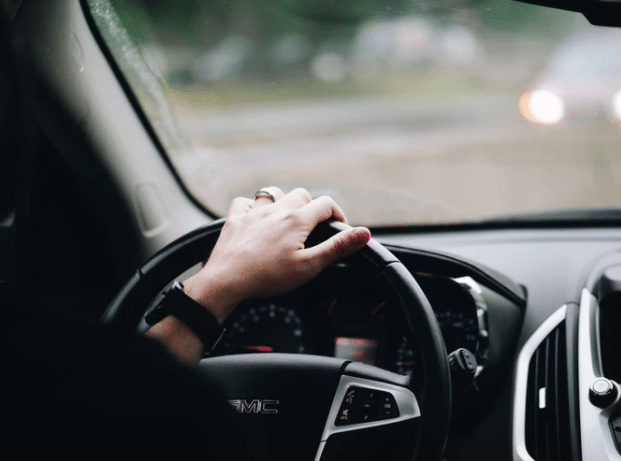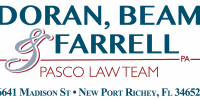Are You Covered By Your Auto Insurance? Insurance, Explained
Tuesday, October 13, 2020 9:41 AM

- Car insurance is something that every car owner knows they need, but doesn’t know what exactly it does, what it covers, or even how to use it. In Florida, there are seven different types of insurance you can buy, two of which are required by law to have. But did you know there are some you’re not required to have that may be of most value to you and your loved ones?
Before you purchase your auto insurance, you should know what kinds of insurance coverages there are. That’s why the team at Doran, Beam, and Farrell compiled and explained all of the auto insurance definitions right here, so you don’t find yourself asking, “Am I fully covered?”
The seven types of auto insurances in Florida are:- Personal Injury Protection (PIP/No-Fault). Required by Florida law to purchase, PIP insurance covers all injuries to you, regardless of who was at-fault for the accident. It also could cover you for any lost wages or workdays missed because of the injury. PIP can pay for up to $10,000.00 at 80% of medical expenses related to the accident and 60% of lost wages, as well as up to $5,000.00 in death benefits. However, in order to claim these benefits, you must see a medical provider within 14 days after your accident. If you do not, then you waive your benefits.
- Property Damage Liability (PD). The second insurance required by Florida law to have is a minimum of $10,000.00 in property damage liability. This coverage pays for any damage caused by you to other’s property. So, if you are at-fault for any car accident, PD covers you, to the extent of the policy limits purchased, by paying for the property damage caused. This includes car or motorcycle damage, as well as damage to buildings and telephone poles. PD does not cover damage to your vehicle; if your car were to be damaged in an accident at the fault of another driver, their PD insurance would cover your damage assuming the total property damage claims (including yours and any other damage caused) does not exceed the PD limits of the at-fault party. If not, see Collision Coverage below.
- Bodily Injury Liability (BI). BI insurance pays for injuries caused by you to other people. If you cause an accident, then your BI insurance is available to protect you from personal injury claims up to the extent of your chosen coverage amount. If you are sued, an attorney will be retained by your insurance company to defend you. Insurance companies often require the injured person to submit a demand and sign a release before they pay for anything. Please note that while this insurance coverage is not required to register your vehicle in Florida, if you are found at-fault for an accident causing injury, and you do not have this coverage, your license may be suspended under the Florida Financial Responsibility Act.
- Uninsured/Underinsured Motorist (UM). Though UM is not required by law to buy, it may be the most valuable kind of coverage you can have. UM insurance pays for the cost of any injuries that you suffered at the fault of someone else when that party has very little or no BI coverage. So, if another driver did not have BI insurance, your UM insurance would cover the costs of any medical bills, lost wages, and pain and suffering up to the limits you purchase. You can buy your UM insurance stacked or non-stacked, but we recommend stacked since it covers your base UM coverage, multiplied by the number of cars on your policy. Additionally, even if one vehicle is on your policy, “stacked” can be beneficial in providing a broader level of coverage. If you decide not to carry UM coverage in Florida, then you are gambling that the at-fault driver will have enough coverage to pay for your losses and injuries from the crash.
- Medical Payment Coverage (MP). MP insurance covers medical expenses that your PIP does not cover. It generally covers you, and possibly other passengers in the car, regardless of who is at-fault for the accident. It may also cover any injuries that occur in or out of the car, such as a pedestrian/bicyclist who was struck by a vehicle while walking/riding.
- Collision Coverage. If your car collides with another vehicle, crashes into an object, or turns over, collision coverage pays for the cost of any repairs, regardless of who is at-fault, less any deductible. This is important to have in case you are struck by an uninsured motorist, a hit-and-run, or you are at-fault for an accident.
- Comprehensive Coverage (Comp). Comprehensive coverage pays for other losses such as theft, fire, flooding, vandalism, or storm damage. Under comprehensive coverage, you will still have to pay a deductible.
Sources:
https://getjustice.com/common-questions/auto-insurance/florida/
https://www.floridabar.org/public/consumer/tip002/#Untitled%20Section
https://patch.com/florida/palmharbor/bp–florida-car-insurance-explained


